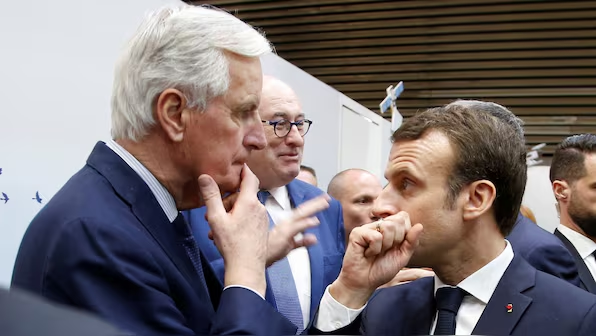
- The motion was tabled after Barnier, appointed recently by President Emmanuel Macron, invoked special presidential powers to push through his controversial budget without parliamentary approval.
- With 331 MPs backing the motion, the government was forced to step down, and the budget that sparked the crisis was rendered null and void.
- Although the vote does not affect President Macron directly, he is facing growing pressure to restore stability, especially with high-profile events like US President-elect Donald Trump’s visit to Paris this weekend.
In an unexpected political upheaval, French Prime Minister Michel Barnier has been ousted after MPs voted overwhelmingly in favour of a no-confidence motion, leading to the collapse of the government. This marks the first time since 1962 that a French government has fallen due to such a vote, throwing the country into deeper political instability.
The motion was tabled after Barnier, a former Brexit negotiator appointed just three months ago by President Emmanuel Macron, invoked special presidential powers to push through his controversial budget without parliamentary approval. The budget, which included deficit-reducing measures worth €60bn, was met with fierce opposition from both the left-wing New Popular Front (NFP) and the far-right National Rally (RN). They criticized Barnier for bypassing parliament to pass social security reforms, accusing him of undemocratic behaviour. RN’s leader, Marine Le Pen condemned the budget as “toxic for the French.” Despite Barnier’s defence that difficult financial measures were necessary, the opposition parties were united in demanding his resignation. With 331 MPs backing the motion, the government was forced to step down, and the budget that sparked the crisis was rendered null and void.
Barnier is expected to remain caretaker prime minister while President Macron selects a successor. The current political deadlock, caused by a fragmented parliament following the summer’s snap elections, ensures that no single party holds a clear majority. This has left France without a functioning government, and the situation is likely to continue until new parliamentary elections in July 2025.
Although the vote does not affect President Macron directly, he is facing growing pressure to restore stability, especially with high-profile events like US President-elect Donald Trump’s visit to Paris this weekend. Macron has promised to address the nation, but political uncertainty looms large over the country’s future governance.
Shobhil Shrivastava is a postgraduate student specializing in Diplomacy, Law, and Business at O.P. Jindal Global University. His academic focus spans International Relations, Geopolitics, Defence, and Security. Views expressed are the author’s own.
